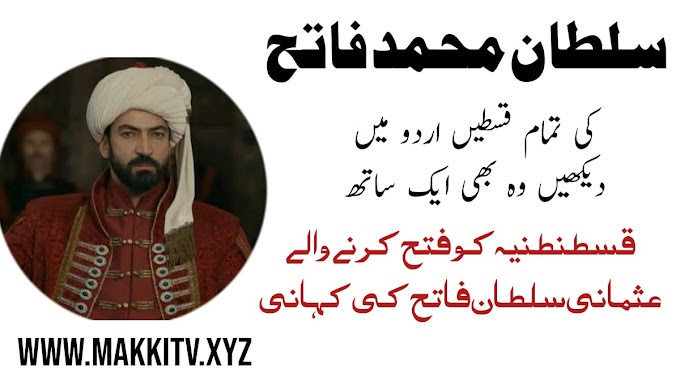It’s late July of the year 1018.
The summer sun was slowly reaching its zenith as the camp dwellers on the Eastern bank of the Bug River bustled around preparing a midday meal.
Then, the droning clamour of soldiers and servants moving around were spurred by the unexpected sound of clashing swords and human agony coming from the river.
A moment later, a handful of breathless guards rushed into the camp, straight towards the officer’s tent.
Grand Prince Yaroslav and his retainers stormed out yelling orders.
The battle was about to begin. It’s spring of the year 1014. For the last twenty five years the vast lands of Kievan Rus were ruled by Grand Prince Vladimir, arguably one of the most prominent representatives of the Rurik dynasty to date. He was not only the first Eastern Slavic ruler to abandon paganism in favour of Christianity, but he also consolidated the Kievan realm from the medieval Ukraine to the Baltic, strengthening the frontiers in the process. However, Vladimir’s successful reign was quite frequently marred by his uneasy relationship with his many sons, to the point that by his mid-fifties the matter of Vladimir’s succession was still open, which unsurprisingly caused some unrest among his offspring. By 1014 it was already rather obvious that Vladimir was leaning towards bequeathing the Kievan throne to one of his younger sons, which in turn outraged his two oldest sons – Sviatopolk and Yaroslav. Both of them started acting against their father, eventually compelling Vladimir to take more drastic measures to douse the sparking rebellion.
Sviatopolk was imprisoned, and a military campaign was being prepared against Yaroslav, who ruled the remote city of Novgorod in his father’s name. In the summer of 1015 Vladimir was ready to depart Kiev on a military expedition north to subdue his disobedient son. But Yaroslav was never to suffer the ire of his father and overlord, as Vladimir unexpectedly fell ill and after a couple of weeks died, leaving the fate of the Kievan realm to his quarrelsome sons. As the death of the Grand Prince happened so suddenly, the only one who was able to capitalize immediately on Vladimir’s death was Sviatopolk, who managed to set himself free and seize the Kievan throne before his other brothers could react. Subsequently, to solidify his claim, Sviatopolk orchestrated the murder of his three younger siblings, so the only other serious contender remaining was the acting Prince of Novgorod, Yaroslav. We ought to mention, that due to the poor reliability of the primary sources, it was entirely possible that Vladimir’s younger sons could well have been eliminated by Yaroslav, who then made sure to properly influence the chroniclers. Regardless of who committed the fratricide, Kievan Rus was soon to be the stage of a civil war as in early 1016 Yaroslav gathered an army and marched south to challenge Sviatopolk for the throne in Kiev. The two contenders met in battle some kilometres north of the city at the banks of Dnieper River and Yaroslav’s host eventually routed Sviatopolk’s army, forcing him to flee to the West. While the Novgorodian army marched further south to seize Kiev for Yaroslav, Sviatopolk sought refuge at the court of his father-in-law, Boleslav the Brave, the ambitious Duke of Poland. Sviatopolk’s flight to the West was not all that unexpected for the Polish duke, as Boleslav had already assisted Sviatopolk’s struggle for power before. However this time Boleslav was unable to provide immediate support, as the Duchy of Poland was in the middle of a lengthy conflict with Henry II, the King of Germany and the Holy Roman Emperor.
It was not until early 1018, when the Treaty of Bautzen ended the hostilities on Boleslav’s western frontier that he could concentrate his attention on the East and possibly expand his influence onto Kievan Rus. In the summer of the same year, Boleslav led a plentiful Polish contingent intending to take over Kiev and install Sviatopolk on the throne. Boleslav’s forces were supplemented by a few hundred German knights, Hungarian mercenaries and a sizeable unit of Pecheneg riders.
Seemingly, Grand Prince Yaroslav could have mounted the defence at the border strongholds or even at the capital, but being aware that Sviatopolk’s faction in the Kievan Rus was still going surprisingly strong; he had to make sure his brother was not allowed to set foot within the Kievan domain.
Thus, Yaroslav’s host of roughly equal size to that of the Polish duke rushed out West to face the enemy. Before he was able to reach the bordering Bug River, Yaroslav received reports that Boleslav’s Pecheneg allies managed to ride straight to Kiev unhindered and had laid the siege of the city. Yaroslav sent some of his men back to bolster the Kievan garrison, but the main body of his army continued the march West, arriving at the eastern bank of the Bug river on 22nd of July. Soon, the scouts brought news that Boleslav’s host was already pitching tents on the other bank of the river. While Yaroslav was undoubtedly worried about the situation in Kiev, at least the tactical position of his main army was much better, as it was Boleslav who had to take the risk of crossing the river. Initially, both sides engaged mostly in minor skirmishes and verbal swordplay while the Polish side prepared the equipment and makeshift bridges to cross the river.
It all appeared to be a lengthy standoff, especially as Boleslav ordered the preparation of a feast for his troops. But in the morning of the very next day, events escalated quickly. Upon seeing Polish soldiers and servants gutting animals near the river, Yaroslav’s vanguard made some attempts at harrassing the camp dwellers. In response, enraged Polish skirmishers crossed the river and managed to kill some of Yaroslav’s skirmishers and push back the rest, unexpectedly gaining a foothold on the Eastern bank of the river in the process. Both rulers were swiftly informed of these new circumstances, but Boleslav’s response was much quicker. In no time, using bridges, boats and horses, Boleslav’s men crossed the river and stormed Yaroslav’s host, which had barely even started forming the battle line. Battle ensued as Yaroslav struggled to muster as many men as he could to supress the rising number of enemy soldiers who managed to cross the river. But, as the clash raged, Yaroslav’s ill-prepared defence grew weaker and casualties mounted. The Kievan ruler knew that his men were not inferior, and still hoped to the last moment that the tide would turn. Yet Boleslav and his retinue would not let the victory slip out of their hands. It was not even an hour into the battle when the Kievan host was forced to retreat to avoid further losses. It was a significant loss to Yaroslav, whose casualties were so considerable that he didn’t even attempt to relieve Kiev but retreated straight back to Novgorod to treat wounds and resupply. Boleslav, on the other hand, marched to the city besieged by the Pechenegs and soon received the surrender of its forsaken garrison. Sviatopolk was reinstated as the Grand Prince of Kiev and a couple of months later Boleslav, content with the positive outcome of his eastern campaign, departed on his way back to Poland with his carts full of loot and treasures. For Sviatopolk however, the intervening months were not so fortunate. Despite the considerable following he had in Kiev, he failed to capitalize on this and create a strong centre of power. Just a year later, he was once again threatened by Yaroslav, who gathered another host but this time defeated Sviatopolk in the field. Sviatpolk once again attempted to flee to Poland and the support of his father-in-law, but instead he died of wounds on his way there. Thus, Yaroslav was left as the only claimant to the Kievan throne. Despite his initial setbacks Yaroslav maintained the position of Grand Prince for the next 35 years, elevating Kievan Rus to one of the strongest medieval states in the region and posthumously gaining the telling nickname of Yaroslav the Wise. This video is sponsored by Audible. Before there was writing, there was the spoken word. Until the end of July, Audible is offering an amazing deal to all Amazon Prime members: Head over to audible.com/bazbattles or text bazbattles to 500 500, and get your first three months for only $4.95 per month, a third of what you would ordinarily pay. Thereafter, it’s just $14.95 a month.
With the largest collection of audio books on the planet you can have your pick of any title per month along with 2 Audible Originals exclusive titles produced specifically for Audible by some of the worlds finest authors and narrators. A strong recommendation for fans of our channel would be A History of War in 100 Battles, a look at 100 conflicts of the past that influence us, today. Support our channel, go to audible.com/bazbattles or if you’re in the US you can also SMS bazbattles to 500 500, sign up before the end of July and if you’re an Amazon Prime customer receive your first three months each at a third of the regular cost.















0 Comments
Thanks For Makki Tv Website Visit Please Contect My Whatsapp Number For Updates 03155017246